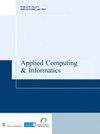实现大数据的承诺:台湾如何帮助世界减少医疗差错,推进精准医疗
IF 4.9
Q1 COMPUTER SCIENCE, INFORMATION SYSTEMS
引用次数: 1
摘要
目的本研究探讨台湾的电子健康数据系统如何用于建立减少或消除医疗差错的算法,并推进精准医疗。设计/方法/方法本研究是对文献的叙述性回顾。研究发现医学知识的体量已经变得太大,以至于临床医生无法解析。理论上,电子健康记录可以通过电子临床决策支持系统(cdss)增强临床决策。然而,计算机科学家和临床医生在建立cdss方面取得的进展甚微,因为健康数据往往被分散在许多不同的系统中,这些系统不能互操作,也不能使用通用标识符进行连接。因此,美国的医学实践往往不一致,缺乏对最佳预防和临床实践的坚持。信息技术基础设施薄弱造成医疗差错和浪费,导致护理不佳,每年造成数万人过早死亡。相比之下,台湾的国家卫生系统是由一个协调的电子数据系统支撑的,但仍未得到充分利用。本文以台湾全民健保研究数据库为基础,提出人工智能驱动的CDSS系统开发的理论路径。理论上,这样的系统不仅可以优化护理和防止临床错误,还可以使患者能够跟踪他们实现个人健康目标的进展。原创性/价值虽然研究团队以前构建了应用有限的人工智能系统,但本研究为使用世界上为数不多的统一电子健康数据系统之一构建全球基于人工智能的CDSS系统提供了框架。本文章由计算机程序翻译,如有差异,请以英文原文为准。
Realizing the promise of big data: how Taiwan can help the world reduce medical errors and advance precision medicine
PurposeThe study explores how Taiwan’s electronic health data systems can be used to build algorithms that reduce or eliminate medical errors and to advance precision medicine.Design/methodology/approachThis study is a narrative review of the literature.FindingsThe body of medical knowledge has grown far too large for human clinicians to parse. In theory, electronic health records could augment clinical decision-making with electronic clinical decision support systems (CDSSs). However, computer scientists and clinicians have made remarkably little progress in building CDSSs, because health data tend to be siloed across many different systems that are not interoperable and cannot be linked using common identifiers. As a result, medicine in the USA is often practiced inconsistently with poor adherence to the best preventive and clinical practices. Poor information technology infrastructure contributes to medical errors and waste, resulting in suboptimal care and tens of thousands of premature deaths every year. Taiwan’s national health system, in contrast, is underpinned by a coordinated system of electronic data systems but remains underutilized. In this paper, the authors present a theoretical path toward developing artificial intelligence (AI)-driven CDSS systems using Taiwan’s National Health Insurance Research Database. Such a system could in theory not only optimize care and prevent clinical errors but also empower patients to track their progress in achieving their personal health goals.Originality/valueWhile research teams have previously built AI systems with limited applications, this study provides a framework for building global AI-based CDSS systems using one of the world’s few unified electronic health data systems.
求助全文
通过发布文献求助,成功后即可免费获取论文全文。
去求助
来源期刊

Applied Computing and Informatics
Computer Science-Information Systems
CiteScore
12.20
自引率
0.00%
发文量
0
审稿时长
39 weeks
期刊介绍:
Applied Computing and Informatics aims to be timely in disseminating leading-edge knowledge to researchers, practitioners and academics whose interest is in the latest developments in applied computing and information systems concepts, strategies, practices, tools and technologies. In particular, the journal encourages research studies that have significant contributions to make to the continuous development and improvement of IT practices in the Kingdom of Saudi Arabia and other countries. By doing so, the journal attempts to bridge the gap between the academic and industrial community, and therefore, welcomes theoretically grounded, methodologically sound research studies that address various IT-related problems and innovations of an applied nature. The journal will serve as a forum for practitioners, researchers, managers and IT policy makers to share their knowledge and experience in the design, development, implementation, management and evaluation of various IT applications. Contributions may deal with, but are not limited to: • Internet and E-Commerce Architecture, Infrastructure, Models, Deployment Strategies and Methodologies. • E-Business and E-Government Adoption. • Mobile Commerce and their Applications. • Applied Telecommunication Networks. • Software Engineering Approaches, Methodologies, Techniques, and Tools. • Applied Data Mining and Warehousing. • Information Strategic Planning and Recourse Management. • Applied Wireless Computing. • Enterprise Resource Planning Systems. • IT Education. • Societal, Cultural, and Ethical Issues of IT. • Policy, Legal and Global Issues of IT. • Enterprise Database Technology.
 求助内容:
求助内容: 应助结果提醒方式:
应助结果提醒方式:


